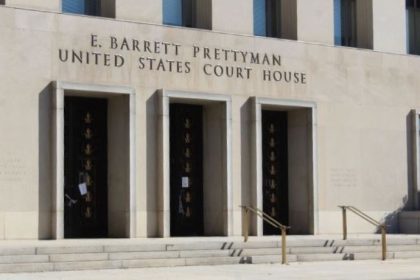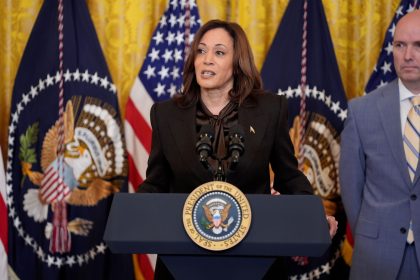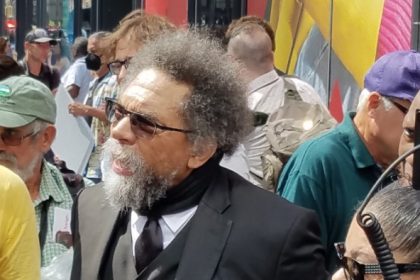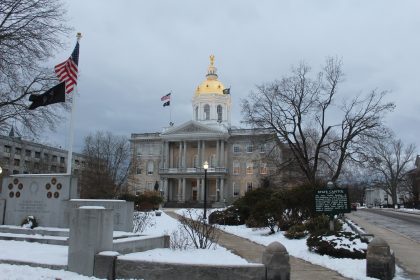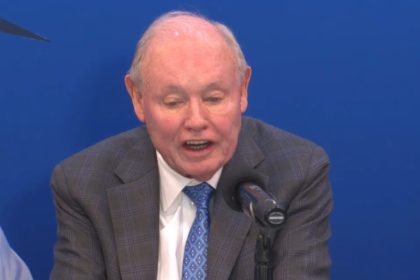North Carolina Lawmakers Open Door to Qualifying More Voter IDs for 2020
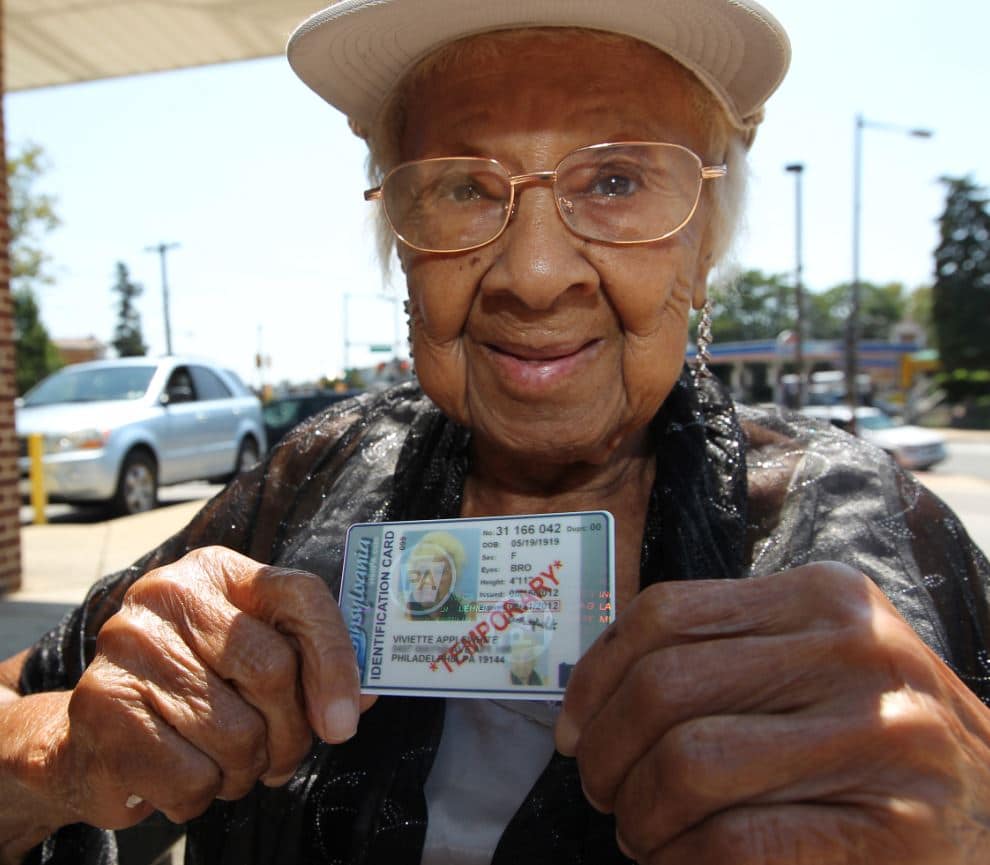
A bill filed in the North Carolina House of Representatives last week would ease some standards that identification cards issued by state colleges, universities and other institutions have to meet before they can be used as photo Voter ID in the 2020 elections.
The legislation, which has bipartisan support, would also give colleges, government agencies and Native American tribes more time to bring ID cards they commonly use into compliance with the new state rules.
But perhaps more than that, the filing of the bill illustrates the impact newly-elected Democrats are already having in North Carolina’s General Assembly, a body in which Republicans enjoyed a supermajority until the 2018 election.
GOP lawmakers in the state capitol have been trying to implement a photo Voter ID law in North Carolina for years.
A 2013 law that included a Voter ID photo requirement was tossed by a panel of federal judges in 2016 after they concluded the policy “targeted African-Americans with almost surgical precision.”
That same year, a state elections board audit of votes cast in the 2016 general election found only one case of in-person voter impersonation out of the 4.8 million votes cast.
The state’s GOP lawmakers, however, were undeterred. They argued that suspected voter fraud was simply under reported. In 2018, they backed a ballot initiative that would add the voter ID photo requirement to the state constitution.
Despite Democratic Governor Roy Cooper’s urging voters to reject the measure, calling it “wrong for our state” and “a solution in search of a problem,” the amendment passed with 55 percent of the vote.
That set up a showdown between the governor’s office and the legislature last December. Before the ballot initiative could go into effect, the governor would have to sign it into law. Instead, Cooper declined and vetoed the measure.
Days later, the state legislature voted mostly along party lines to override the governor’s veto. That’s when voters stepped in to challenge the new ID requirements in court, claiming they disproportionately harm minority citizens and the poor, and that they were drafted by lawmakers elected in illegally drawn legislative districts – districts that are currently the subject of a case before the U.S. Supreme Court.
In February, a state superior court judge sided with the voters, holding that the GOP-controlled legislature lacked the authority to put the constitutional amendment on the ballot because the lawmakers had been elected from racially gerrymandered districts two years earlier.
According to Wake County Superior Court Judge Bryan Collins the state’s General Assembly was “illegally constituted” because federal judges had declared the district maps used in the 2016 legislative elections illegal racial gerrymanders.
“An illegally constituted General Assembly does not represent the people of North Carolina and is therefore not empowered to pass legislation that would amend the state’s constitution,” the judge wrote.
The Republican majority on the legislature vowed to appeal that ruling, arguing that while the panel of judges ruled the most recent state legislative district map was a racial gerrymander, they also allowed it to be used in the 2016 elections.
In reality, said Democratic Representative Ray Russell, because of a technicality, the Republicans got what they wanted even in losing.
“The judge’s ruling struck down the constitutional amendment,” said Russell, who in addition to being a legislator is also a computer science professor and the operator of a popular local weather website, raysweather.com.
“What it didn’t strike down was the enabling legislation that actually put the new photo voter ID rules in place,” he said. “I’ve heard one group or another plans a separate challenge to those, but so far, I haven’t heard of anything coming of it.”
Preparations for New Photo Voter ID Regime Press On
Against the backdrop of legal challenges, preparations for the use of the new photo Voter ID rules continued.
Because the state elections board had found last fall’s race to represent North Carolina’s Ninth Congressional District was tainted by fraud, a special election was set in the district, with a primary to be held on May 14, and a new general election, on September 10.
Realizing methods for applying the new photo Voter ID rules would never be in place in time, Republicans in the General Assembly filed a bill exempting the contest from the new rules.
At the same time, a provision of enabling regulations directed the state election board to approve or reject the use of various photo ID cards by March 15.
But as the board considered the ID cards used on University of North Carolina system campuses, it quickly realized there was a problem. The IDs regularly used by students and employees on 12 of those 17 campuses did not meet the standards of the new election law, nor did IDs used by some local government entities and Native American tribes.
Some estimates said as many as 900,000 voters could be effected; some suggested the number could be much higher.
Less than 10 percent of the 850 schools, government agencies and tribes eligible to have their ID cards approved submitted requests before the March 15 deadline, said Kim Strach, the state election board’s executive director, in a letter to the state General Assembly in March.
Of those that did, some schools described a process of issuing IDs where students or employees submitted their own pictures. The elections board concluded those applications could not be approved, Strach said.
Some colleges and universities have programs that do not require all students who have IDs to provide personal information that meets the law’s requirements, she wrote.
“For example, one university indicated that it requests all applicants to provide the required information but they have several programs that allow local high school students to take courses on campus, and these students receive university identification cards without going through the process that requests social security number, citizenship status and birthdate,” she wrote.
Other universities have ways other than Social Security number, birth date, and citizenship status to identify students, Strach continued, noting, those applications also had to be rejected.
“We understand that the General Assembly intended for students and employees of identified institutions to be able to use their student or employee identification card to vote,” Strach wrote. “We also understand the General Assembly wants to ensure identification cards are produced in a manner that confirms the identity of the individual depicted on the identification card. It is my belief that it was for both of those important goals that requirements for the identification card were established, and the statutory approval process in the statute is a way to ensure both goals may be met.”
Russell and another freshman Democratic representative, Zack Hawkins, a former president of the Young Democrats of North Carolina, immediately filed a bill pushing the deadline for choosing which IDs could be used to vote to November 10, a move that would also allow universities and others to bring their IDs into compliance.
“[Republican] Representative David Lewis, chairman of the House Rules Committee, indicated that personally, he was in favor of our bill,” Russell said. “He didn’t immediately bring it to a vote, but that was okay. Things seemed to be moving in the right direction.”
An Unexpected Death Leads to an Opportunity
This is when fate intervened. On February 9, 2019, U.S. Representative Walter Jones Jr. died less than a month after breaking his hip and being placed in hospice care. Published reports said by the time of his death, he’d been ailing for several months with amyotrophic lateral sclerosis.
Jones’ death meant the state would need to schedule a second congressional special election. Governor Cooper set a primary date of April 30. If a runoff is needed, that would be held on July 9, with a general election to be held on September 10. If no runoff is needed, the July 9 date will serve as the general election.
Suddenly, the legislature had a problem — a looming special election that had not been exempted from the new photo Voter ID law. And the body had to act quickly to allow the requisite time for absentee ballots to be printed and distributed.
“So the Republicans put forward a bill to remedy that situation, exempting that race as well from the photo Voter ID requirement, and that gave me the opportunity to file the earlier bill Zach and I had done as an amendment to theirs,” Russell said.
Russell’s amendment, though germane to photo Voter IDs, was defeated in the General Assembly. But Representative Lewis made a commitment, on the floor of the chamber, to address the issues the freshmen Democrats were concerned about.
“Almost immediately after that, Zach and I proposed a bill that would address some of the structural problems having to do with the student IDs,” Russell said. “Representative Lewis looked at it, liked the language we had come up with, and told us there were other issues they’d like to fix at the same time.
“In the end, Representative Lewis decided to put it all together in one bill, listing himself as lead sponsor, which of course, is his prerogative as leader of the majority of the chamber, but he also kindly recognized Zach and myself as co-sponsors of the bill.”
The bipartisan bill introduced on April 9 also listed Republican Representative Jon Hardister, the state House majority whip, as a sponsor.
It specifically seeks to address situations where a student or employee was allowed to upload or otherwise provide their own photo for their ID, rather than the institution or a contractor taking the photo.
The legislation would also give institutions more flexibility in how they confirm a student’s or worker’s identity, which had required they check the person’s Social Security number, citizenship status and birthdate.
The requirement also would remove language from the amendment that forced institution officials to affirm details of the photo identification process under penalty of perjury.
Most importantly, the bill would give institutions until November 1 to get their ID cards qualified for 2020 voting.
Without the legislation, colleges and other institutions who had their ID cards rejected for use in the 2020 election would have to wait until 2021 before their cards would be eligible for reconsideration.
“I promised last month that I would introduce legislation to ensure that additional IDs would have the chance to be approved, and this is the product of that effort,” Representative Lewis said in a tweet last week.
“The bill further gives additional flexibility for early voting schedules during odd-year elections, which should save local governments significant sums and enable counties to conduct early voting for municipal elections in an orderly fashion,” he said.
In a tweet of his own, Representative Hawkins said simply that he and others had “Worked across the aisle to pass a major improvement to the voter ID law … ensuring the university and employee IDs can be used to vote in the 2020 election.”
Russell gave more expression to just how extraordinary he believes the bill is.
“Would not have imagined being a primary bill sponsor with Rep. Lewis, but it happened today,” he said on Facebook.
Could Lewis’ being at the forefront of the bipartisan efforts to fix North Carolina’s new photo voter ID requirement be indicative of the fact the dynamics of the statehouse have changed since November, when Democrats successfully broke GOP supermajorities in the House and the Senate?
Though Republicans still hold majorities of 66-55 in the House, and 29-21 in the Senate, some have suggested that Republican lawmakers like Lewis, a staunch and vocal defender of the gerrymandered map now being scrutinized by the U.S. Supreme Court, are increasingly working with their Democratic colleagues to craft legislation that can survive the governor’s veto.
“I don’t think we’ll know that until the end of the session,” Russell said. “Of course, there have been party-line votes this session, but I’m hopeful that this is indicative of a new spirit of bipartisanship. At least, that’s what I wish and I hope for … but like I said, the proof will be in how everything shakes out at the end.”


















